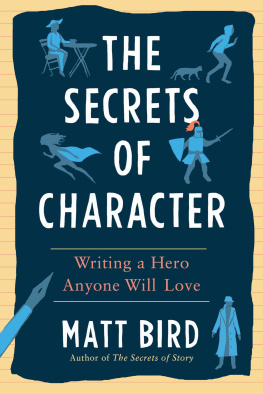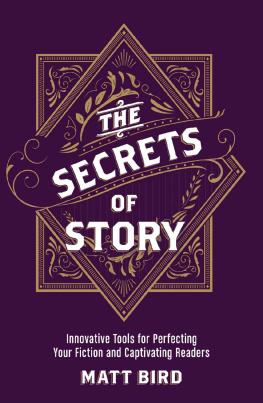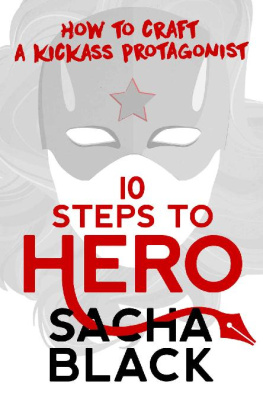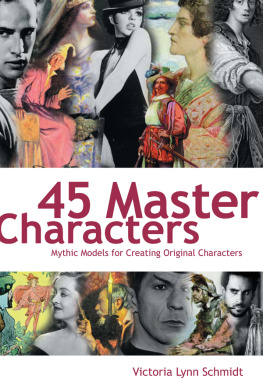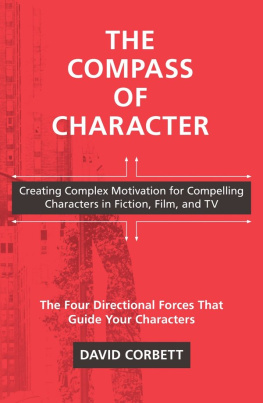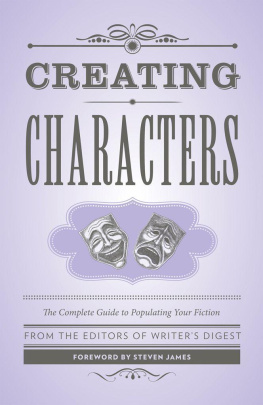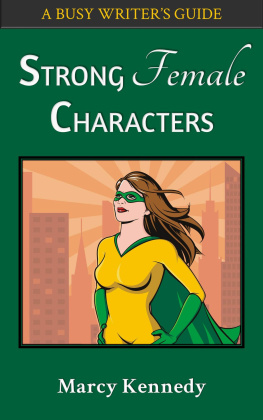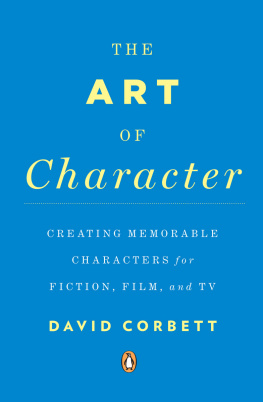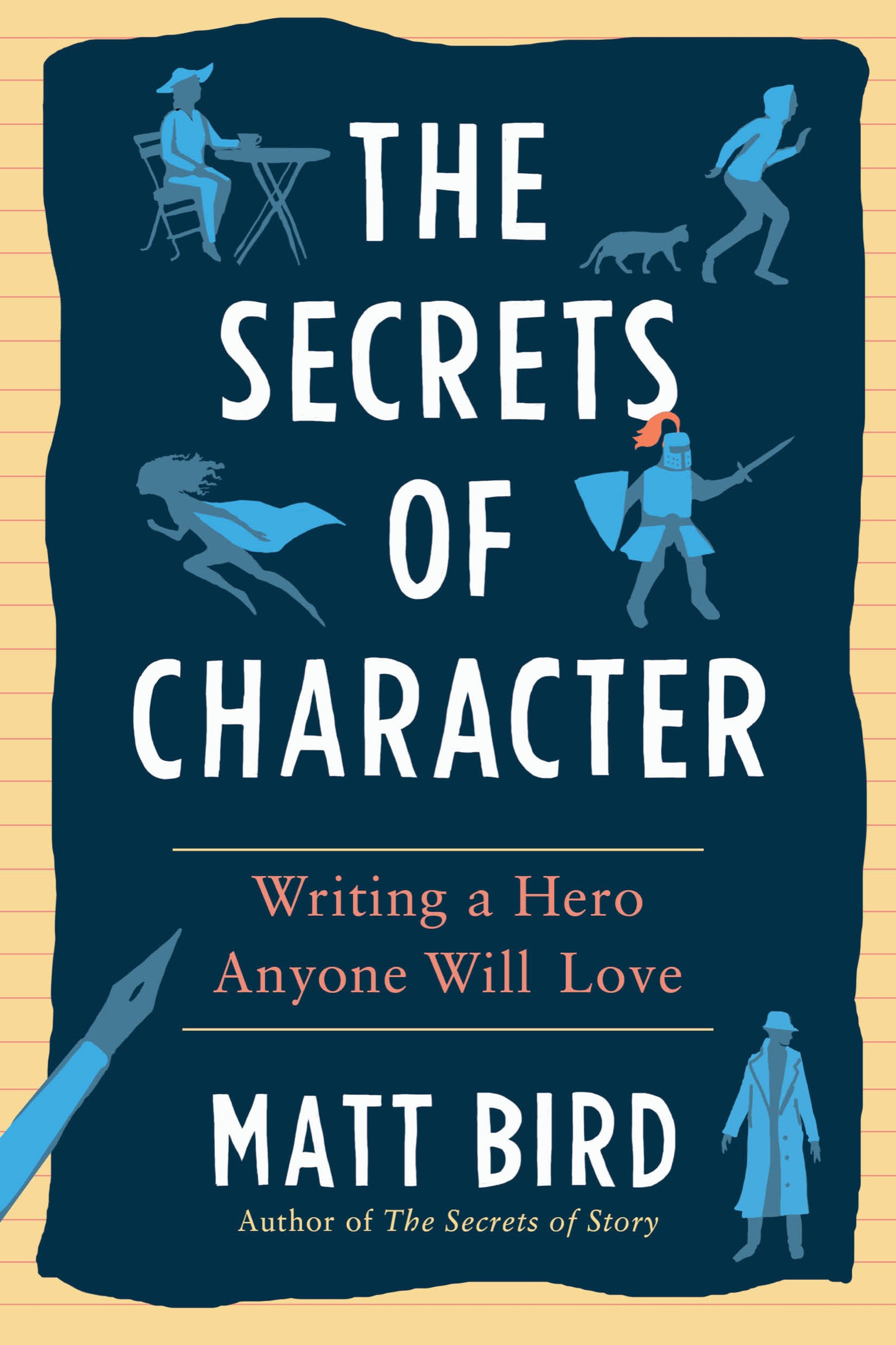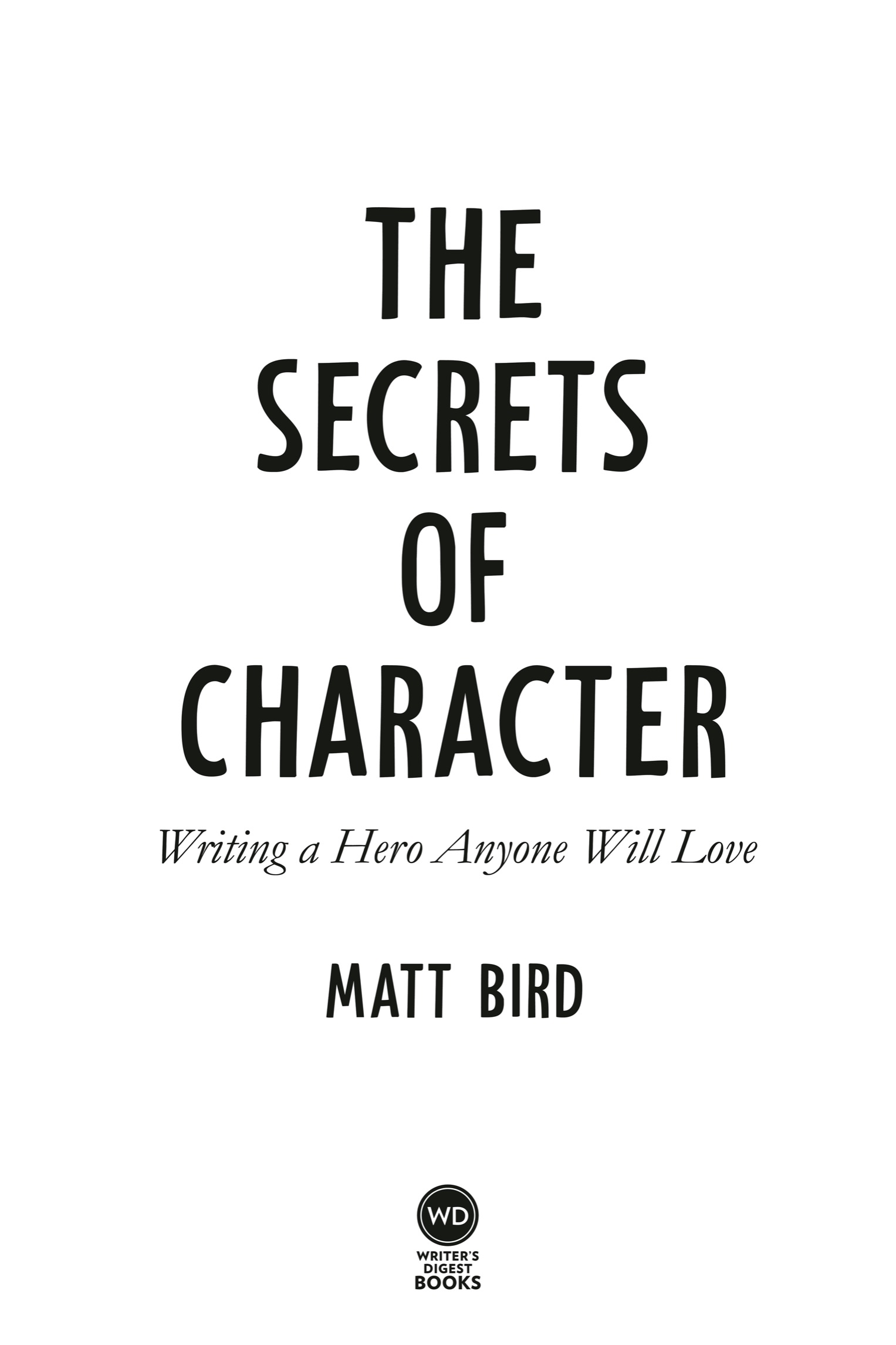Praise for The Secrets of Character
There are plenty of books on the craft of writing. But theres only one Matt Bird, the ultimate writing coach: smart, funny, insightful, and armed with a toolbox of innovative tips for creating characters readers will love. Whether youre new to writing or a seasoned pro, you need this classic-in-the-making.
Katherine Applegate, Newbery Awardwinning author of The One and Only Ivan
The Secrets of Story instantly became one of my favorite writing guides. This follow-up dives under the water to take an even more in-depth look at the iceberg of character development. Meticulously researched and brimming with examples, it offers advice that is both precise and actionable. It reveals the genre-spanning patterns of memorable and resonant characters in an easy-to-access reference format that makes for both fun reading and a great tool to keep on your desk for easy thumb-through inspiration.
K. M. Weiland, author of Creating Character Arcs and Structuring Your Novel
Matt Bird has done it again! The Secrets of Character is a book you want next to you when you write. From revealing what gatekeepers look for in your first ten pages to sharing powerful writing tricks from 150 years ago through today, this is a book to read with your laptop nearby. Youll see what your writing needs, and its sure to inspire you to write!
Torrey Maldonado, author of What Lane? and Tight
All the great ideas in the world dont matter if you dont hook your audience out of the gate. In Matts new book, he lays it out plain and simple, practical advice for making readers grab on to your protagonists and never let go. The Secrets of Character is the perfect companion to The Secrets of Story, another essential writing guide from Matt Bird.
Lou Anders, Hugo-winning editor and author of Once Upon a Unicorn and Star Wars: Pirates Price
Who says there are no shortcuts to success? Matt Birds marvelous The Secrets of Character offers indispensable, easy-to-implement story hacks that guarantee your character will grab readers attentionand ensure you have a story worth writing.
Keir Graff, author of The Three Mrs. Wrights and The Swing of Things (writing with Linda Joffe Hull as Linda Keir)

An imprint of Penguin Random House LLC
penguinrandomhouse.com

Copyright 2022 by Matt Bird
Penguin supports copyright. Copyright fuels creativity, encourages diverse voices, promotes free speech, and creates a vibrant culture. Thank you for buying an authorized edition of this book and for complying with copyright laws by not reproducing, scanning, or distributing any part of it in any form without permission. You are supporting writers and allowing Penguin to continue to publish books for every reader.
Trade paperback ISBN 9780593331224
eBook ISBN 9780593331231
Cover credits: Cover design and illustration by Adam Auerbach
Book design by Ashley Tucker, adapted for ebook by Cora Wigen
pid_prh_6.0_139713515_c0_r0
To Lily and Jack
Table of Contents
Part I
Believe, Care, Invest
Preface
So heres the thing: I get letters.
A few years ago I wrote a book called The Secrets of Story: Innovative Tools for Perfecting Your Fiction and Captivating Readers. Most of the book consists of a checklist with 122 questions you can ask yourself to improve your story, whether its a novel, short story, or screenplay. Now I get the occasional email: I just read your book and Im rewriting my manuscript, but I cant figure out how to answer yes to one question, so could you give me permission to skip that one?
I always say yes, of course. And I cringe. Both before and after I deliver the checklist in that book, I insist that any story that checks all 122 boxes will be terrible, but evidently I didnt make that clear enough throughout the book. I made it sound like each item absolutely has to be done, and I inadvertently scared people into seeking an audience with me to ask for a special papal dispensation.
Theres a delightful comedic novel called How I Became a Famous Novelist by Steve Hely. In the book, the hero decides that he wants to find instant success as a writer, so he does an analysis of every book on the bestseller list, then crafts a book cynically targeted at the broadest possible readership: The Tornado Ashes Club.
Once hes finished his manuscript, he sends it to a friend who works in publishing in New York. She soon calls him excitedly, saying its going to get her promoted. You thought it was good? he asks. Oh, not good good, she replies. But shes going to buy it anyway: Because you meet the checklist!
She explains that her corporate overlords have dictated that all new manuscripts must check off every box on a checklist of commercial viability, and his terrible novel is the first one shes ever gotten that checks every box, so shes going to make him rich.
Reading this, I was of course horrified: I am that corporate boss! Have I created a monster?
Dont get me wrong, Im very gratified by the success of my first book. It ended up on the Amazon bestseller list, and its got a big fan base. And Im proud of it, as long as I can reassure myself most readers understand that they shouldnt check every box!
So now here we are with a follow-up, but please use these new suggestions la carte. Pixar says that the advice they give their writers is Tools, Not Rules. Heres a new toolbox, not a rulebook, this time with a focus on characterwhat makes them believable, relatable, and unforgettable.
Remember, you dont have to check every box. As the liquor companies say: Enjoy responsibly!
CHAPTER 1
Bashing Your Head Against the Gates
You are a writer. Maybe youre writing novels, screenplays, TV scripts, memoirs, plays, or comics. One way or another, youve got a hero, and youre asking people to care about them. But youve got a problem: No one is agreeing to read your work. Publishers, movies studios, agents, and managers are all saying no to you.
Then, one day, dawn breaks. A gatekeeper agrees to read your manuscript! Youre ecstatic. But then they specify: I tell you what, just send me the first ten pages, and Ill take a look at those, then Ill have you send me the rest if Im still interested.
What an ass! Your story doesnt even get going until page seventeen. How can they judge it based on ten measly pages?
Well, before you get too pissed, you should appreciate one piece of good news: This gatekeeper is being honest with you. Anyone who tells you otherwise is lying. No one clears their slush pile by reading every manuscript cover to cover. Everyone just reads the first ten pages, which is enough to eliminate nine out of ten submissions.
So does that mean you should shoehorn your first three plot points into those first ten pages to give them a sense of whats going to happen? Nope. This brings us to a central law of storytelling from my first book: Nobody really cares about your story, they just care about your hero. Theyre not looking for a great

